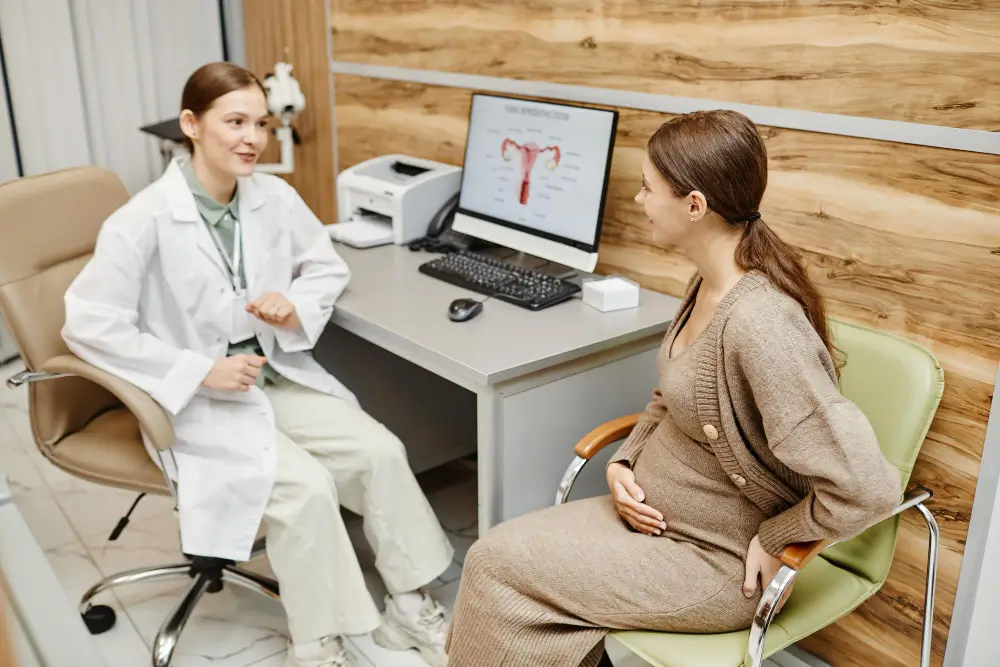Infertility is a concern that affects millions of women worldwide. For many, the inability to conceive naturally can feel overwhelming, leading to emotional stress, physical challenges and uncertainty about the future. Understanding female infertility, its causes, symptoms and treatment options is the first step toward regaining hope and finding effective solutions.
In this guide, we’ll explore everything you need to know about women infertility, from common risk factors to modern treatment plans available today.
What Is Female Infertility?
Female infertility refers to a woman’s inability to conceive after one year of regular, unprotected intercourse (or six months for women over 35). It also includes challenges in carrying a pregnancy to full term. Although infertility is usually thought to be a problem of women, statistics indicate that male infertility is also prevalent. But women are faced with specific issues with their reproductive health that require special treatment.
Causes of Female Infertility
Infertility can result from multiple factors, often overlapping in complex ways. Here are the most common causes of infertility in women:
1. Ovulation Disorders
Irregular ovulation or failure to release eggs is a leading cause of infertility. Conditions like Polycystic Ovary Syndrome (PCOS), hormonal imbalances, or thyroid issues often contribute.
2. Fallopian Tube Blockages
Scarring or blockages in the fallopian tubes can prevent eggs from meeting sperm. Causes may include pelvic inflammatory disease, endometriosis, or previous surgeries.
3. Endometriosis
This condition occurs when tissue similar to the uterine lining grows outside the uterus, leading to pain, inflammation, and infertility issues in women.
4. Uterine or Cervical Problems
Structural issues like fibroids, polyps, or cervical mucus abnormalities can interfere with implantation or sperm movement.
5. Age-Related Decline
Fertility decreases significantly after the age of 35 due to diminished ovarian reserve and reduced egg quality.
Symptoms of Female Infertility
Unlike other health issues, infertility symptoms in women are not always obvious. However, some signs may indicate underlying reproductive challenges:
- Irregular or absent menstrual cycles
- Painful or heavy periods
- Unexplained pelvic pain
- Hormonal changes (acne, hair loss, or weight gain)
- Difficulty conceiving after 6–12 months of trying
If you experience these symptoms, it’s best to consult a specialist early for a proper diagnosis.
Diagnostic Process for Women’s Infertility
Identifying infertility requires a thorough evaluation by a medical professional. A female infertility treatment in NYC center typically uses:
- Blood tests to assess hormone levels
- Ultrasounds to evaluate the ovaries and uterus
- Hysterosalpingography (HSG) to check fallopian tube blockages
- Ovarian reserve testing to estimate egg supply
This comprehensive diagnostic process ensures the root causes are identified before treatment begins.

Treatment Options for Female Infertility
Thanks to medical advancements, there are many effective treatments available today. A female infertility treatment plan depends on the underlying cause, age and overall health.
1. Lifestyle Changes and Medication
- Regulating weight and diet to improve ovulation
- Hormone therapy to balance reproductive hormones
- Medications such as Clomiphene or Letrozole to stimulate ovulation
2. Surgical Procedures
Surgery can be recommended to address structural issues like endometriosis, fibroids, or blocked tubes. The minimally invasive methods will ensure quicker recovery and better fertility results.
3. Assisted Reproductive Technology (ART)
- Intrauterine Insemination (IUI): Sperm is placed directly into the uterus to increase the chances of fertilization.
- In Vitro Fertilization (IVF): Eggs are fertilized in a lab and then implanted in the uterus.
- Intracytoplasmic Sperm Injection (ICSI): A single sperm is injected into an egg during IVF.
4. Holistic and Integrative Therapies
Clinics such as Patients Medical often incorporate integrative approaches, including stress management, nutritional counseling, and natural supplements, to complement medical treatments.
Risk Factors That Affect Women’s Infertility
Certain factors increase the risk of women infertility:
- Advanced maternal age
- Smoking and alcohol use
- Poor diet or extreme weight fluctuations
- Chronic conditions like diabetes or thyroid disorders
- Prolonged stress and environmental toxins
By addressing these factors early, women can reduce the risk of long-term infertility.
Emotional Impact of Infertility Women Face
Infertility isn’t just an issue with physical health, but also a journey of the mind. Women are often faced with depression, anxiety, stress and stress in relationships. Support from family, therapy, and infertility support groups can make this journey more manageable.
When to See a Specialist
You should consider visiting an infertility doctor near me if:
- You’ve been trying to conceive for over 12 months (or 6 months if over 35)
- You have irregular or absent menstrual cycles
- You’ve been diagnosed with conditions like PCOS, endometriosis, or thyroid issues
- You’ve had multiple miscarriages
Choosing the Right Female Infertility Clinic in New York
New York has some of the best clinics for treating infertility. Choosing the right female infertility clinic in New York means considering factors like:
- Expertise of the medical team
- Availability of advanced diagnostic tools
- Personalized treatment plans
- Integration of holistic and medical care
- Supportive environment and patient-focused approach
FAQs on Female Infertility
Q. What is the most common cause of female infertility?
Ans : The most common cause is ovulation disorders, often linked to PCOS, hormonal imbalances, or thyroid conditions. Blocked fallopian tubes and endometriosis are also significant contributors to the infertility women face.
Q. Can lifestyle changes improve infertility in women?
Ans : Yes. Maintaining a healthy weight, eating a balanced diet, reducing stress, and avoiding smoking or alcohol can improve ovulation and overall reproductive health, increasing the chances of conception.
Q. What are the signs of infertility in women?
Ans : Irregular cycles, absence of periods, painful menstruation, pelvic pain, and hormonal changes such as acne or weight gain may signal underlying fertility issues that require medical evaluation.
Q. Is IVF the only treatment for female infertility?
Ans : No. While IVF is effective, other treatments like medication, hormone therapy, surgery, or IUI may be recommended depending on the root cause. Each treatment is tailored to individual needs.
Q. When should I consult an infertility doctor near me?
Ans : If you’ve been unable to conceive after 12 months (6 months if over 35), or if you experience irregular cycles, miscarriages, or conditions like PCOS or endometriosis, seek medical guidance promptly.
Conclusion: Trust Patients Medical for Compassionate Care
Dealing with infertility can feel daunting, but modern treatments offer hope and success. By understanding the causes, recognizing the symptoms and seeking timely medical help, women can take control of their fertility journey.
At Patients Medical, we specialize in integrative, compassionate, and effective care for women facing infertility. As a trusted female infertility treatment center, our team provides advanced diagnostics, personalized treatments and holistic support to help women achieve their dream of parenthood.
Take the first step toward parenthood today—contact us at Patients Medical to schedule your consultation for female infertility treatment in NYC.

Dr. Kulsoom Baloch
Dr. Kulsoom Baloch is a dedicated donor coordinator at Egg Donors, leveraging her extensive background in medicine and public health. She holds an MBBS from Ziauddin University, Pakistan, and an MPH from Hofstra University, New York. With three years of clinical experience at prominent hospitals in Karachi, Pakistan, Dr. Baloch has honed her skills in patient care and medical research.





